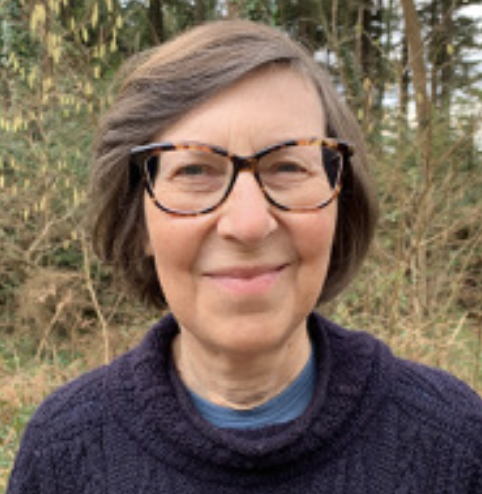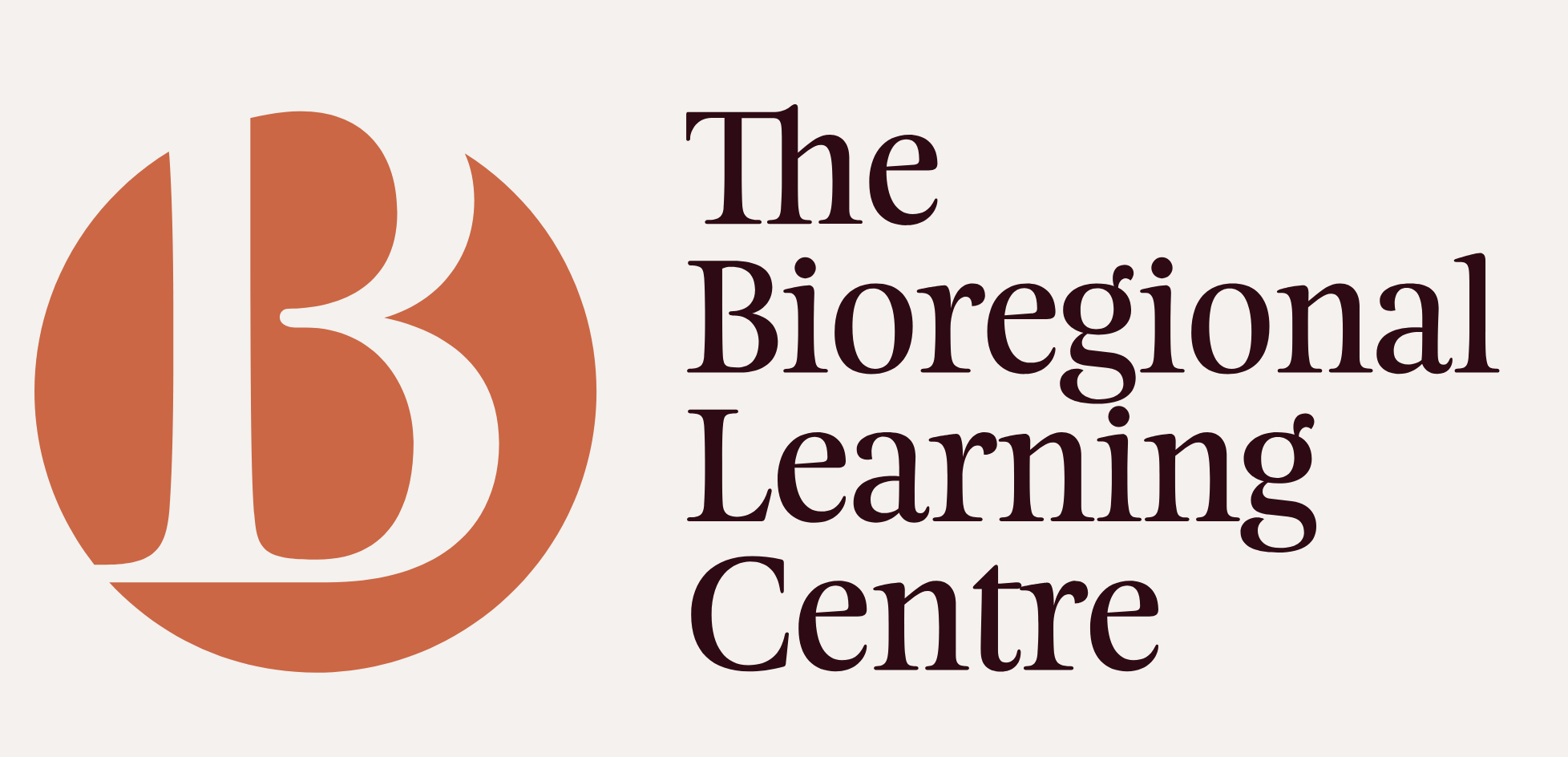Isabel Carlisle is a leading figure in bioregional education and action who has a great term for describing the planetary eco- mayhem now underway -- “Gaia on the move.” As climate change intensifies and humankind disrupts ecosystems, Gaia is causing ice caps and glaciers to melt and the atmospheric jet stream to skitter and shift course. The Amazonian forest becoming a net emitter rather than absorber of atmospheric carbon
As these system-changes disrupt local ecosystems, through coastal flooding for example, Carlisle sees cues for how to move forward. The disruptions “reveal where the fragility is,” said Carlisle, and that’s where to focus attention.
“By working into those points of fragility, we think we can flip them around and make them leverage points for change,” she said. “We can start to demonstrate the value of bioregioning and what it is.”

Carlisle founded and now directs the Bioregional Learning Centre in Devon, England, in 2017. Over the past eight years, she and a modest team have taken a leading role in mobilizing bioregional action at practical, strategic, and policy levels. One sentence nicely captures the group’s mission: “We generate trust through partnership, resource others, lay out pathways for practical action, inspire and demonstrate.”
The Bioregional Learning Center (BLC) is chiefly concerned with improving the resilience of its own regional ecosystem in southwest England. But it has also become an important node in the global network of bioregional activists. BLC hosted a major virtual conference on bioregioning in 2022, which helped re-energize a field of activism that had been somewhat dormant since its heyday in the late 1970s and 1980s.
To get a better feel for the surge of the state of bioregioning today, I spoke with Carlisle on my podcast, Frontiers of Commoning (Episode #65). We discuss specific BLC projects, the group’s strategic goals and philosophy, and the challenges and opportunities facing the movement.
Carlisle sees “three pillars” supporting BLC’s work: collaborative governance and organization for decisionmaking and shared purpose….funding and resourcing based on a different notion of “value”….and citizen-generated data and evidence to document how bioregional approaches are working.
A powerful cross-cutting force in many BLC projects is art and culture. The group appreciates the importance of storytelling and art-making in developing the cultural, ecological, and economic relationships for bioregional identity.
Carlisle brings deep experience to this challenge from her previous life in the London art world, as an art critic for The Times of London, and an exhibitions curator at the Royal Academy of Arts. She learned from this work how the arts can provide new experiences and vistas of understanding for bringing diverse people together.
An upcoming example is a BLC-hosted “Bioregional Banquet,” which will bring together farmers, fishers, producers, gleaners, cooks, and food-lovers” from across the region to celebrate the region’s vibrant food culture. BLC has also hosted a number of creative meet-ups to stimulate people’s awareness of the natural spaces in Devon, using stories and artworks about place to bring people together.

Another project, “Voices of the Dart” (the Dart is the local river) has prototyped ways that citizens can save water in fun, ongoing ways. The “Doughnut for Devon” uses the principles of “Doughnut Economics” to devise indicators and scenarios for local action. (The outer circle of the “doughnut” indicates the outer capacities of ecosystems that must be respected, while the inner circle represents minimal social needs that must be met.)
I was curious how the BLC situates itself with respect to the British state, law and policy. Can activists and commoners really work with the state to improve bioregional resilience when history shows that the state’s is far more interested in fueling capitalist investment and growth?
Carlisle agreed that that’s a problem, but she noted that a rare opportunity is afoot to shift governance toward a bioregional frame. The UK’s Labour government is proposing that regional governments and county councils -- organized along old political jurisdictions -- be disbanded. A new unitary political authority would consolidate diverse administrative tasks into one basket. “We're stepping into a realm of new possibilities,” said Carlisle. “There’s now a growing sense of possibility that it does make sense to work [in more integrated ways] at a biregional scale.”
BLC sees a devolution of centralized state authority to local and bioregional players as a great way to unleash creative energies at the frontlines of the climate crisis. It would also enable holistic, systemic approaches to problems currently seen as separate and episodic.
Moving to a systems approach at the bioregional level introduces a whole new way of thinking Carlisle explained. Instead of seeing the Earth as an inventory of resources – as government policymakers and corporations tend to do – people can begin to see the challenge as how to take care of “flows, networks, and relationships” -- the dynamic forces that drive living planetary systems.
This is where bioregioning and commoning converge. Both are focused on dynamic relationships among living entities. They both reject the humanity / nature divide that moderns take as self-evident, and instead embrace the interconnectedness of the human and more-than-human -- and even the inorganic elements of the Earth, which interact with living entities.
With this shift in perspective, regenerative design comes to the fore. It shifts the focus to supporting “vitality, viability, and the capacity to evolve,” said Carlisle. “Vitality means the capacity of a being to not just exist in the world, but to thrive.”
A whole-systems approach “connects up health and food and energy and transport and political voice and coastal marine health and so on, in ways that the state doesn't necessarily feel it needs to get involved in.” While nation-states may be stumbling along, oblivious to whole-system dynamics, bioregionaling is not just a serious vanguard player in addressing planetary systems, their breakdown, and healing responses. It will be essential as states become even more ineffectual.
“The state just doesn't have the capital in the treasury to rebuild all the infrastructure that's going to start to crumble….The state isn't really able to provide us with access to drinking water, for instance.” The UK water regulator claims it will supply water to every citizen at current levels until 2050, she says, but that’s patently impossible thanks to levels of pollution and climate disruptions, not to mention Westminster’s other political priorities.
So BLC forges ahead, independently, in concert with peers around the world, demonstrating the power of bottom-up, participatory bioregioning in developing better responses to Gaia on the move. It's an open-ended and necessary exploratory project on so many levels. “We are giving civil society much more of a voice,” said Carlisle. “You could say we are reanimating democracy.”
You can listen to my interview with Isabel Carlisle here.










Recent comments